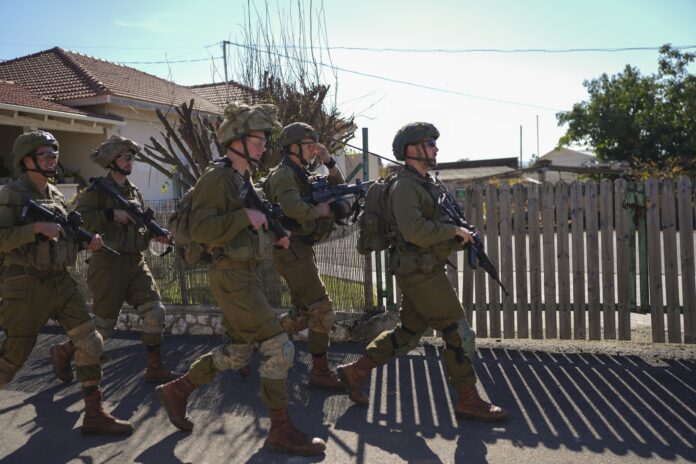Tensions flared again on Monday as Hezbollah fired into a disputed border zone controlled by Israel, marking the militant group’s first strike since a U.S.- and French-brokered ceasefire took effect last week. Hezbollah described the attack as a “warning shot” in response to what it claimed were repeated Israeli violations of the truce.
Israeli Retaliation
Within hours, Israel launched multiple airstrikes across southern Lebanon, including five hits in the al-Tuffah region, according to Lebanese state media. The strikes reportedly targeted Hezbollah positions, though details on casualties or damage remain unclear. Over the past week, Israeli strikes in Lebanon have killed at least four people and injured others.
Israeli leaders swiftly condemned Hezbollah’s actions. Prime Minister Benjamin Netanyahu called the attack “a serious violation” and vowed a forceful response. Defense Minister Israel Katz warned the strikes “will be met with a harsh response.”
The Israeli military stated that Hezbollah fired two projectiles at Mount Dov, a contested territory also known as Shebaa Farms, with no reported injuries.
Ceasefire Under Strain
The ceasefire, which began Wednesday, aimed to halt hostilities between Hezbollah and Israel after more than a year of conflict tied to the broader Israel-Hamas war in Gaza. Under the deal, Hezbollah is required to withdraw its fighters and infrastructure north of the Litani River within 60 days, while Israeli troops are to pull back to their side of the border.
However, tensions remain high. Lebanon’s Parliament Speaker Nabih Berri accused Israel of violating the truce more than 50 times through airstrikes, drone overflights, and property demolitions. Meanwhile, Israeli officials assert their strikes are responses to Hezbollah provocations.
Food Crisis Worsens in Gaza
Amid escalating tensions in Lebanon, the humanitarian crisis in Gaza deepens. Hunger is becoming a grave concern as food supplies dwindle. The United Nations halted aid deliveries via the Kerem Shalom crossing on Sunday, citing looting and the breakdown of law and order.
According to the U.N., over a million Palestinians have gone without monthly food rations since July, with famine fears growing in northern and central Gaza. Israeli forces have isolated northern Gaza, displacing hundreds of thousands, many now living in overcrowded tent camps.
Though Israel reported allowing 40 trucks with 600 tons of flour into southern Gaza on Sunday, aid levels remain critically low. The U.N. estimates that less than half of humanitarian supplies reach intended recipients due to security concerns and logistical challenges.
International Response
The United States and France, mediators of the ceasefire, have urged restraint, while the White House downplayed the significance of Monday’s exchanges. “Largely speaking, the ceasefire is holding,” said National Security Spokesman John Kirby, noting a sharp decline in overall strikes.
As both sides continue to trade accusations, the tenuous truce faces an uncertain future, with regional stability and civilian lives hanging in the balance.


